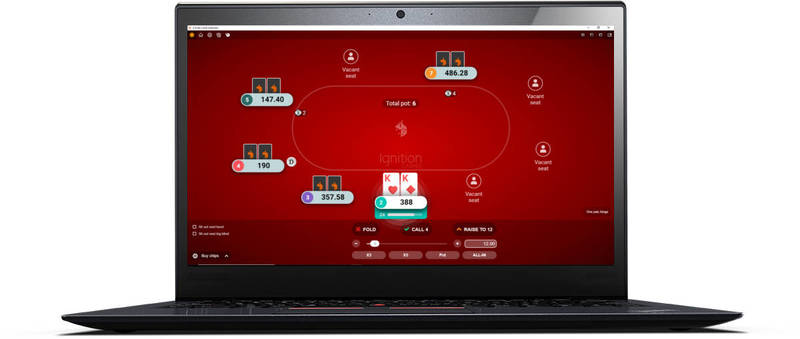Value Betting

You want to extract as much money as possible from your opponents when you have a winning hand. The more money you can win from your opponents, the higher your winrate will be.
The process of squeezing more money from your opponents is known as maximizing the value of your hand, and there are a few steps that you can take to make this happen.
The most important fact about increasing the amount you can win on each hand is that you have to get your opponent to put money into the pot. If your opponent is not putting money into the pot, then you are not gaining any value on your hand, as the amount you will be winning after the hand is complete will remain the same throughout.
To get your opponent to put as much money into the pot as possible, you have to be betting and raising when it is your turn to act, which is something that a lot of players fail to do.
A common mistake when betting.
The most common mistake that novice players make is that they freeze up whenever they hit a very strong hand, and start to check and call thinking that they are luring their opponent in and setting them up for a big fall. However in reality, all that is happening when you check and call is that you are missing opportunities to get more money into the pot for you to win.
Checking, calling and generally slowplaying at every opportunity with a strong hand is counter-productive. You want to win money right?
There are rarely going to be situations where you check and call throughout the hand, and then be able to get all of your opponent's chips in on the river, it just doesn't happen. This is one reason why slowplaying is more often than not a bad option, as you are restricting yourself from maximizing the value on your hand, and thus reducing the amount of money you expect to win.
Common value betting mistake example.
For example, say we are in late position holding 3![]() 3
3![]() and decide to call a raise from a player in middle position. The flop comes A
and decide to call a raise from a player in middle position. The flop comes A![]() 9
9![]() 3
3![]() , a great flop for our hand as we now have a set. Our opponent now comes out with a ¾ pot size bet and the action is on us.
, a great flop for our hand as we now have a set. Our opponent now comes out with a ¾ pot size bet and the action is on us.
The novice mistake here would be to slowplay, and simply call this bet. You have the perfect opportunity to get more money into the pot and increase the stakes throughout the rest of the hand, so why would you even consider throwing this chance to raise away?
Sure, you could check with the intentions of luring your opponent in, but if it turns out that they do have an ace, you are missing a great opportunity to raise the stakes, and allowing for a potential scare card to come on the turn to slow the action down.
Don't miss out on great opportunities to get more money in to the pot by trying to be tricky.
Alternatively, you may be afraid of raising here because you do not want to scare your opponent out of the pot. But if you think about it logically, if your opponent is not going to call a raise on the flop, what makes you think you are going to get any money out of them on future betting rounds?
How to maximize value in poker.
The fact of the matter is; if you can't get any money out of your opponent when you have a strong hand in a good spot, you were never going to get much money from them anyway.
This principle is key and should be remembered every time you find yourself in this sort of situation. Always take the opportunity to raise and get more money into the pot if you think there is a good chance that your opponent has a decent hand, but don't be afraid that your opponent will fold, as you would not have been able to extract much from them later in the hand anyway.
I am never frustrated when I raise with a monster hand and my opponent folds. I would rather take the chance of making lots of money on the hand by raising, rather than checking the hand through hoping for a bluff each time, and missing the opportunity to win big when my opponent does indeed catch a piece of the flop.
Don't be afraid to bet when you have the best hand. The only way you are going to win big pots with big hands is by betting and raising, so don't shy away from doing so.
Value betting on the river.
A final point in the process of maximizing value is value betting on the river when you think you have the best hand.
A very common rookie mistake is to bet small on the river to entice a call from your opponent when you know that you have the best hand. Many amateur players will think "I don't want to bet big here and make my opponent fold, so I will bet small and allow my opponent to call to get a little extra money". Let me explain why this is wrong through the use of mathematics:
It is true that the bigger the bet, the less likely your opponent will be to call. But on the other hand, you will be winning quite a substantial amount of money when your opponent does call. Conversely, your opponent will call the small bet more often, but you will be winning less when they do call.
Value betting on the river example:
Say for instance that we are last to act on the river with what we feel is the best hand. There is $100 in the pot and it is up to us to decide how much we should bet.
Assume that we know for a fact that if we bet $20 into this pot, our opponent will call 7 times out of 10. However, if we bet $100 into this pot, our opponent will call 2 times out of 10. Therefore if we took each scenario and repeated it 10 times, we would find that:
- We win $140 in total by betting $20.
- We win $200 in total by betting $100.
As you can see, we will be winning $60 more by betting the size of the pot rather than betting a small amount to try and entice our opponent to call. So even though we will be getting called less often, we will be winning more in the long run by betting a larger amount.
You win more money over the long run with bigger bets on the river, even if they get called less often.
This is also another key concept that we must take into account, as the value betting on the river is based on the long term winnings, rather than just trying to get your opponent to call small bets every time. The small victories are not the ones that are going to increase our profits at the end of the day.
Value betting evaluation.
Maximizing the value of your hands is all about not being afraid to bet and raise to try and get your opponent to put more money into the pot. You should always focus on the long term rather than playing to try and suck out the value on each individual hand by being tricky and slowplaying every time. It is far better to have you opponents fold most of the time yet win big occasionally, rather than pick up small pots on every big hand you get.
If you have the opportunity to raise and get more money into the pot then do so, poker is all about winning money and not pots. Never be too disappointed if you find that your opponent folds when you have a monster hand; monster hands are great, but they are only truly great if you can make a decent profit on them.
Go back to the awesome Texas Hold'em Strategy.
Comments

